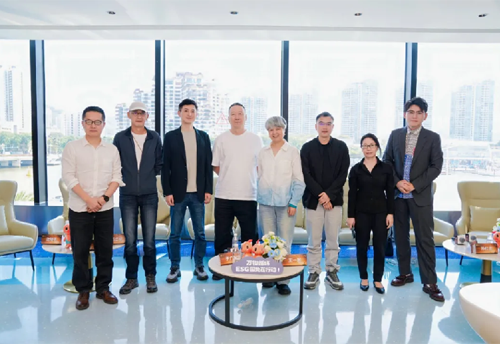- Golden Coconut International Jury Official Selection of Golden Coconut Award Award list Reviews of the Golden Coconut Award
- Line-up Screening by the Sea Around the Island
- HIIFF Talents Master Class Forum Carnival
- Competition Panorama Industry Events & Activities Information
- Cooperation Official Partners Contact Us
- Introduction Archives
- Film Submission Journalist Registration Visitor Registration Volunteers Join Masterclass Official Agenda Screening Schedule
Golden Coconut Forum: The Inheritance and Innovation of Marine Documentary Imaging
date:2024-12-08 source:Hainan Island International Film Festival
On the morning of December 8, the “Golden Coconut Forum: The Inheritance and Innovation of Marine Documentary Imaging” of the 6th Hainan Island International Film Festival was held at the 3rd-floor Sea View Corridor of the China National Pharmaceutical Group Duty-Free Store in Sanya. The forum, hosted by Shen Xiaoping, aimed to explore the development and transformation of marine documentaries from traditional to modern, uncovering their value and potential in the new era.
Lin Youzheng, a second-level inspector from the Publicity Department of the CPC Hainan Provincial Committee, attended the forum and delivered a speech. He stated that the CPC Central Committee attaches great importance to building China into a strong maritime country, and General Secretary Xi Jinping’s related discourse has provided direction for the development of maritime undertakings. Strengthening the creation and research of marine documentaries is the mission of cultural and artistic workers in response to the strategy of building China into a strong maritime country. As a major maritime province, Hainan has a profound maritime cultural heritage, and the construction of the free trade port also requires marine documentaries to contribute to the cultural and artistic efforts.
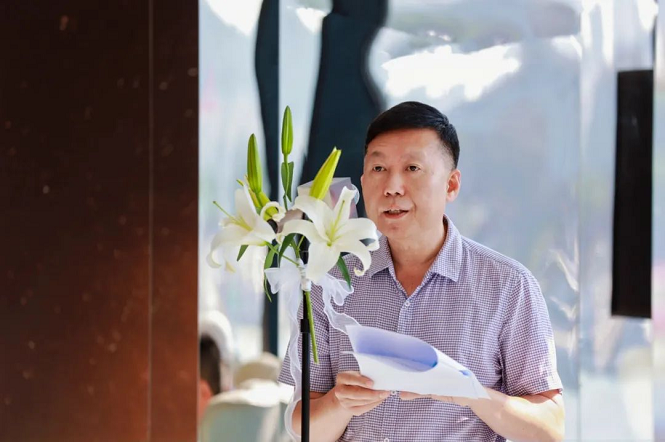
Lin Youzheng put forward four expectations for documentary filmmakers: Firstly, they should follow Xi Jinping’s cultural thought and the discourse on building a maritime power to promote the prosperity of marine documentaries. Secondly, they should root themselves in the ocean and explore compelling stories. Thirdly, they should innovate their thinking and expand the space for the development of documentaries. Lastly, they should focus on Hainan and regularly visit for fieldwork and creative inspiration.
The documentary Soaring Through the Ocean was screened on-site, sparking an in-depth discussion among the attendees on marine documentaries.
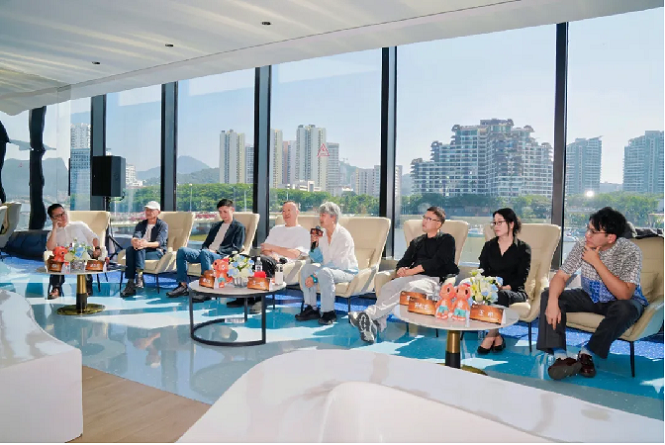
Director Duan Jinchuan reviewed the development of marine documentaries, discussing two works—Man of Aran (1934) by Robert J. Flaherty and this year’s The Last of The Sea Women. He explored the creative considerations involved in documenting traditional ways of life and the changes they face, sparking a deep discussion on the authenticity of documentaries and their creative techniques. He also mentioned his recent field research along the coastline, noting that Hainan Island offers rich material on topics such as history, culture, science, and the relationship between humans and the ocean. Examples include the resources left by places like the China (Hainan) Museum of the South China Sea, the fishing wisdom of the fishermen at Tanmen Fishing Port in the city of Qionghai, and scientific phenomena like typhoons, all of which provide numerous possibilities for creators.
Director Yu Guangyi shared his journey from Heilongjiang to Hainan and the original motivation behind his work in documentary filmmaking. He emphasized that Hainan’s marine cultural heritage is rich and should be urgently documented. He encouraged documentary creators to focus on the local marine culture of Hainan, such as life in fishing villages and the lifestyle of the Li ethnic group, highlighting the significance of such work from the perspectives of personal growth and cultural inheritance. Additionally, from the standpoint of an independent documentary filmmaker, he called for the establishment of a fund to support documentary creators, hoping that filmmakers could receive more practical support in Hainan.
Director Fan Lixin shared his experience in working on the BBC documentary Earth: One Amazing Day, highlighting the BBC’s principles in producing natural history documentaries, such as maintaining distance from animals, avoiding inducing behavior, and offering an equal perspective. He also pointed out the challenges in producing marine documentaries, noting that they require significant investment and long production cycles. He stressed that the current domestic investment system has limitations and is unable to support large-scale productions, expressing hope that the system could be improved in the future to create internationally impactful works. Additionally, he discussed the development potential of documentaries in Hainan, suggesting that the platform of the film festival could be leveraged to establish a market for transactions and proposal units, thus driving the growth of the documentary industry.
Director Wang Yiyan, drawing on nearly 40 years of experience in filmmaking, shared her unique insights on the creation of marine documentaries. She emphasized that documentary creators should focus on improving their ability to express through visuals. She also mentioned the resources available from the Chinese Academy of Sciences in the production of scientific and educational films, encouraging more involvement in creating scientifically focused documentaries. Additionally, she praised the documentaries broadcast by Sansha TV, sharing her personal connection to Sansha and discussing the area’s development and changes over time.
Director Pan Zhiqi, using his own creative practice as an example, discussed the innovation and challenges in the creation of marine documentaries. He mentioned the difficulties faced in the process, such as the imbalance between financial investment and output, as well as the aesthetic innovations required under different creative models, including the combination of narration and visuals in the style of John Grierson and modern aesthetic explorations based on the psychology of contemporary audiences. He called for a search for mechanisms of innovation, advocating for fairer, more market-oriented financial support for independent filmmakers.
Professor Sun Hongyun, from an academic research perspective, reviewed the development of marine documentaries. She pointed out that they have evolved from depicting the struggle between humans and the ocean to focusing on ocean conservation, with documentaries like The Cove reflecting on the human relationship with the ocean. She also introduced several methods used in documentaries to protect the ocean, such as adopting a post-humanist approach, rebuilding relationships, acting as an information medium, and changing the audience’s attitudes. Furthermore, she shared how her own work embodies the concept of equality between humans and animals, encouraging others to focus on marine documentary topics both in creative production and academic research. She hopes that more scholars in Hainan will delve into the field of marine documentary research.
Director Sean Wang, as a young generation visual artist, shared how ocean elements are presented in his works, such as the connection between the ocean and social-political issues in Lady of the Harbour and A Marble Travelogue, and the role of the ocean as a carrier in contemporary globalization. He also mentioned Russian documentary Aquarela and other films that view the ocean from a post-human perspective, as well as contemporary art works where the ocean serves as a medium for reflecting on issues like racism. These examples demonstrate the diverse expression and potential of ocean documentaries across various fields.
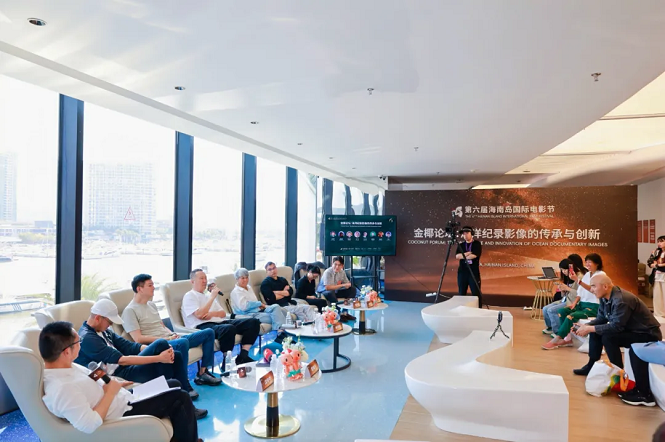
This forum provided a platform for ocean documentary creators, researchers, and enthusiasts to exchange ideas, playing a positive role in promoting the development of ocean documentaries and advancing the spread of ocean culture.
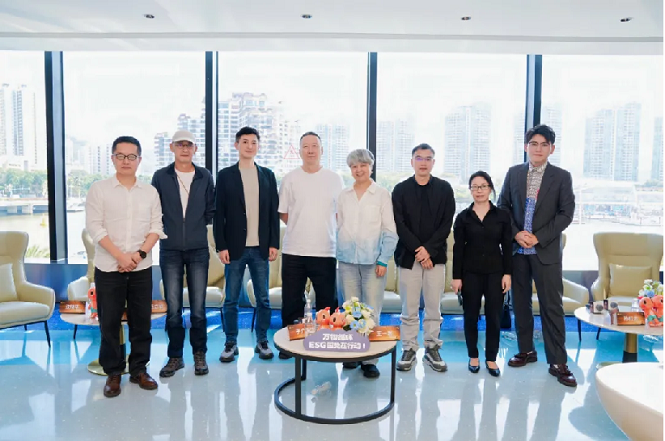

Copyright © www.hiiff.net All Rights Reserved.

